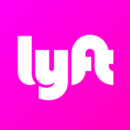The West Coast has always carried an irresistible charm, and San Francisco holds a special place in the region’s storied history. Once a benefactor of the California Gold Rush, San Francisco remains a land ripe with opportunity. The city has replaced aspiring miners with bold tech professionals who are eager to claim a seat at the table of Silicon Valley royalty. Whether it’s cutting-edge software or advanced cloud platforms, the next wave of tech products begins at the shores of the Bay Area.
Top Companies in the San Francisco Bay Area
- Uber- 82,000+ Employees
- Lyft- 22,000+ Employees
- ServiceNow- 15,000 Employees
- Atlassian- 7,000 Employees
- Snap Inc.- 6,000+ Employees
- Invitae- 2,000+ Employees
- Instacart- 2,000 Employees
- Affirm- 1,000+ Employees
- Cisco Meraki- 1,000+ Employees
- Flexport- 1,000+ Employees
Giants like Twitter and Uber often come to mind when people think of the San Francisco tech scene. However, the Golden City continues to shower good fortune upon businesses that push the boundaries of their respective industries. Here are 15 companies that are taking advantage of San Francisco’s resource-rich environment and reinforcing the city’s status as a tech hub.
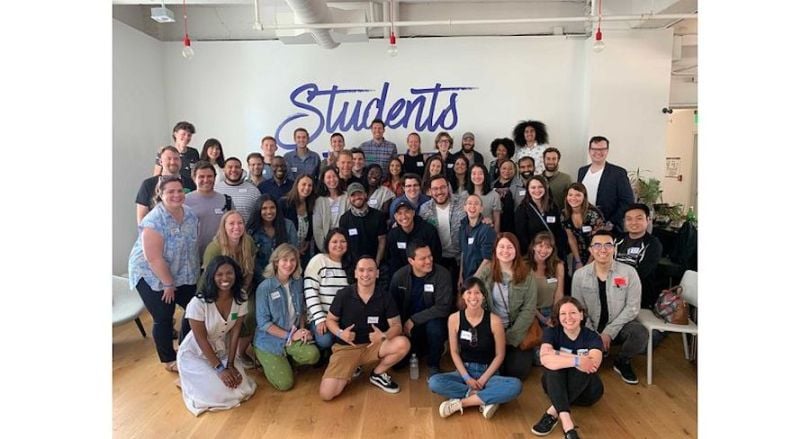
Founded: 2014
Number of employees: 500
What they do: While some people have the connections to land a job, Handshake supports those without such resources. The job search platform connects college students and alumni to over 650,000 companies, including powerhouses like Target and Google. Once students sign up on the mobile app and create profiles, they receive personalized feeds matching them with their ideal employers and positions.
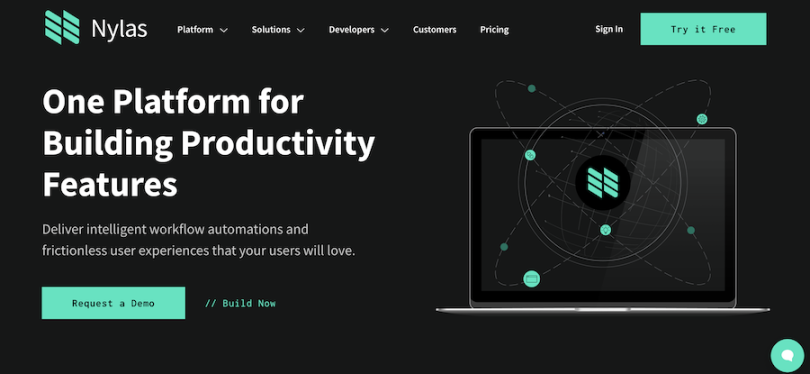
Founded: 2013
Number of employees: 220
What they do: Nylas is giving businesses a competitive edge with its elite productivity features. A single platform integrates countless work applications, extracts emotions from digital conversations, and automates basic communication tasks. With a decluttered approach to work, employees can execute actions at a rapid pace and improve the customer service experience.

Founded: 2010
Number of employees: 1,200
What they do: Not everyone wants to spend hours walking around a shopping mall, so Wish brings the mall to consumers. With a few clicks on the Wish mobile app, customers can access millions of items sold by over 500,000 merchants. Wish’s platform also customizes each feed the more people interact with the platform. As a result, Wish has crafted a digital environment that mimics an in-person shopping experience for all to enjoy.
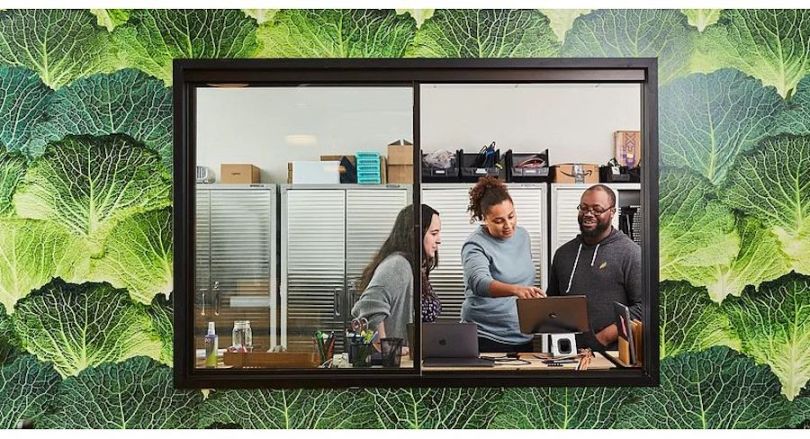
Founded: 2012
Number of employees: 2,000
What they do: The average nine-to-fiver may not have time for a run to the grocery store, so Instacart takes care of this essential chore. Instacart's mobile app and online site allow customers to find food locations near them and select store items. Plus, the company offers same-day pickup and delivery options, so customers can always check one more thing off their to-do list.
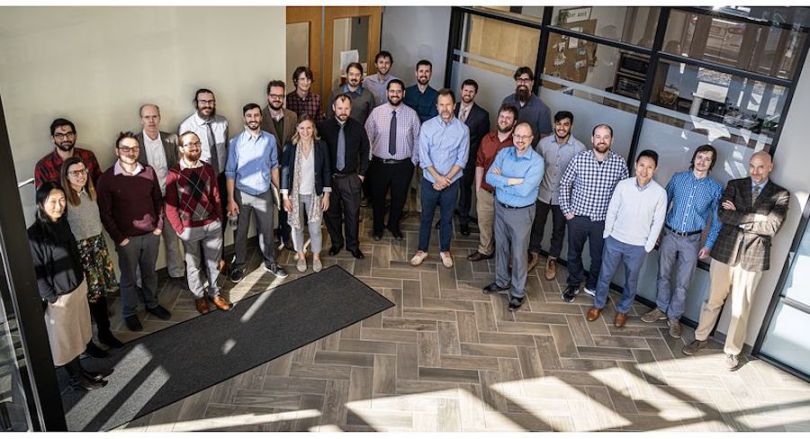
Founded: 2010
Number of employees: 2,300
What they do: Invitae is moving beyond basic symptom reports and exploring genomic information. Relying on genetic testing, customers can make more informed decisions regarding pregnancy, cancer, heart disease, and other serious health concerns. All patients have to do is request a genetic test through Invitae’s site and receive timely results after completing a quick saliva sampling.

Founded: 2018
Number of employees: 400
What they do: Amazon has changed shipping expectations forever, so Deliverr is helping other businesses keep up with customer demands. With simple shipping badges and pricing listings, companies can draw attention to their products and ramp up their product sales. Whether a seller prefers Shopify or Facebook, Deliverr’s visuals work with a range of platforms to reach wider audiences.
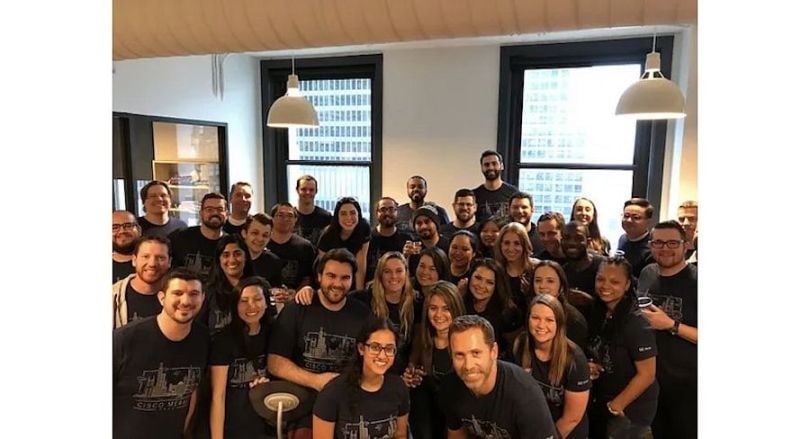
Founded: 2006
Number of employees: 1,800
What they do: Because hybrid and remote workplaces are becoming more prevalent, Cisco Meraki has crafted the ideal network platform. Businesses can manage and secure their networks from a single dashboard, enabling faster reactions and collaborations. Teams can also choose between 140 applications, molding the Cisco Meraki platform to fit their priorities.

Founded: 2012
Number of employees: 7,000
What they do: To stay on top of deadlines, teams are receiving a boost from the productivity tools of Atlassian. The company is known for brands like Jira and Trello, which simplify different aspects of a team’s day-to-day workflow. While Jira accelerates software rollouts, Trello provides visual boards for a convenient way to distribute tasks. As a result, companies can avoid sluggish processes and jumpstart projects with the technology of Atlassian.
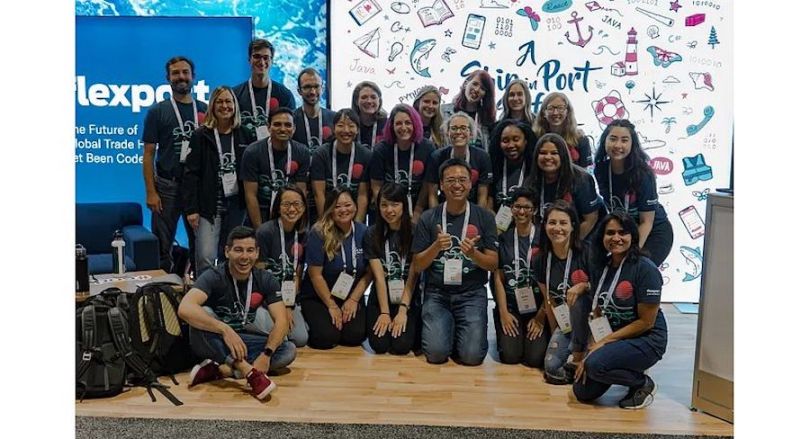
Founded: 2013
Number of employees: 1,562
What they do: Global trade often includes disjointed communication between various parties, but Flexport is reshaping the supply chain industry. With the Flexport Platform, companies gain a bird’s-eye view of their operations. Teams can track shipments through any environment, contact warehouses, and calculate transit costs. Keeping everything together on Flexport’s platform allows businesses to embrace efficiency and effortlessly map out logistics.
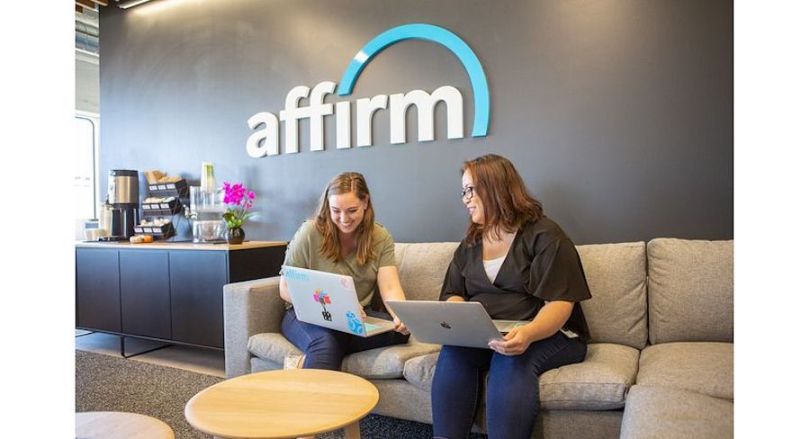
Founded: 2012
Number of employees: 1,455
What they do: Too many consumers become ensnared in credit card debt, so Affirm is offering a more straightforward way to pay. Rather than pay amounts in full, customers can break down payments into installments over two weeks or a month. There’s no interest, hidden fees, or impact on one’s credit score. With an automatic payments feature, customers can worry less about tracking payments and focus more on leveraging Affirm’s web and mobile formats.

Founded: 2004
Number of employees: 15,000
What they do: Companies are developing seamless workflows with the thoughtful technology of ServiceNow. Combining AI, analytics, and machine learning, the Now Platform automates repetitive tasks, encrypts data, and delivers mobile experiences to employees and customers. Plus, the Now Platform contains low-code app building, so teams can easily customize ServiceNow’s solutions to meet their needs.

Founded: 2011
Number of employees: 6,108
What they do: Adding another dimension to everyday experiences, Snap Inc. is providing new perspectives with its creative technologies. Customers can capture moments and enhance them with filters through Snapchat’s camera features. For a more immersive experience, customers can also try on Spectacles’ augmented reality glasses. Snap’s brands continue to craft enriching worlds, revealing how technology can bring people closer together.

Founded: 2009
Number of employees: 81,965
What they do: With 23 offices around the globe, Uber has grown substantially from its early days as a crowdfunded startup. Originally named UberCab, the ridesharing app has transformed the world of transportation in more than 600 cities across the country, raking in 23,552,753 monthly downloads. With $12.7 billion in estimated annual revenue, the company has acquired nine organizations in total so far, including Cornershop, Mighty AI and JUMP Bikes.

Founded: 2007
Number of employees: 4,765
What they do: With more than 600 million registered users across 180 countries, Dropbox provides secure file sharing, collaboration and storage solutions. Initially founded by two MIT students, Dropbox has become a fierce competitor within the cloud-sharing realm, boasting more than 400 billion pieces of content to date. Since its creation, the company has been busy with acquisitions, which amount to 25 so far, with the most recent being HelloSign, acquired for $230 million. Dropbox has an estimated annual revenue of $1.5 billion.

Founded: 2012
Number of employees: 21,985
What they do: With over 23 million users, Lyft has established itself as a viable rival to ridesharing giant, Uber. The company serves about 95 percent of the U.S. population and is currently available in every state and several cities in Canada.













